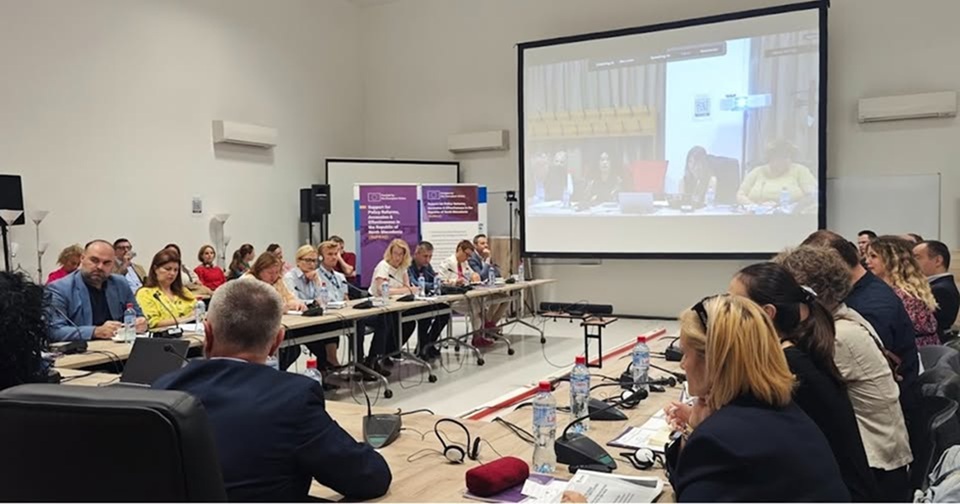Yesterday, FLOROZON – Center for Environmental Democracy actively participated in the Plenary Session of the Sector Working Group on Environment and Climate Change, organized by the Ministry of Environment and Physical Planning (MoEPP) in cooperation with the Secretariat for European Affairs.
The meeting brought together representatives from key government institutions, civil society organizations, and international partners to discuss national strategic priorities in the field of environment and climate action, with a specific focus on the water sector. The agenda included an overview of ongoing and planned reforms, progress in implementing national and EU-funded projects, and coordination mechanisms aimed at improving environmental governance and policy coherence.
During the discussion, FLOROZON’s representative contributed with a critical reflection on the current state of implementation of the legal and institutional framework in the water sector, highlighting several persistent challenges related to its practical enforcement. The organization emphasized the need for stronger institutional accountability, improved intersectoral coordination, and the development of more effective mechanisms for ensuring compliance with environmental regulations.
Particular attention was drawn to the urgent necessity of greater involvement of civil society organizations in water governance — not only in the consultation phase but also in policy development, implementation, and monitoring processes. Strengthening civil society participation was underscored as a key condition for ensuring transparency, accountability, and inclusiveness in decision-making, fully in line with the principles of the Aarhus Convention and the EU Water Framework Directive.
FLOROZON’s participation in the session reaffirmed its long-term commitment to promoting democratic, transparent, and participatory approaches to water management, advocating for governance models that balance environmental sustainability with social responsibility.
By engaging in national policy dialogues, FLOROZON continues to support the alignment of North Macedonia’s water governance policies with European standards and the principles of good governance, contributing to a more sustainable and accountable environmental framework.
The meeting brought together representatives from key government institutions, civil society organizations, and international partners to discuss national strategic priorities in the field of environment and climate action, with a specific focus on the water sector. The agenda included an overview of ongoing and planned reforms, progress in implementing national and EU-funded projects, and coordination mechanisms aimed at improving environmental governance and policy coherence.
During the discussion, FLOROZON’s representative contributed with a critical reflection on the current state of implementation of the legal and institutional framework in the water sector, highlighting several persistent challenges related to its practical enforcement. The organization emphasized the need for stronger institutional accountability, improved intersectoral coordination, and the development of more effective mechanisms for ensuring compliance with environmental regulations.
Particular attention was drawn to the urgent necessity of greater involvement of civil society organizations in water governance — not only in the consultation phase but also in policy development, implementation, and monitoring processes. Strengthening civil society participation was underscored as a key condition for ensuring transparency, accountability, and inclusiveness in decision-making, fully in line with the principles of the Aarhus Convention and the EU Water Framework Directive.
FLOROZON’s participation in the session reaffirmed its long-term commitment to promoting democratic, transparent, and participatory approaches to water management, advocating for governance models that balance environmental sustainability with social responsibility.
By engaging in national policy dialogues, FLOROZON continues to support the alignment of North Macedonia’s water governance policies with European standards and the principles of good governance, contributing to a more sustainable and accountable environmental framework.





